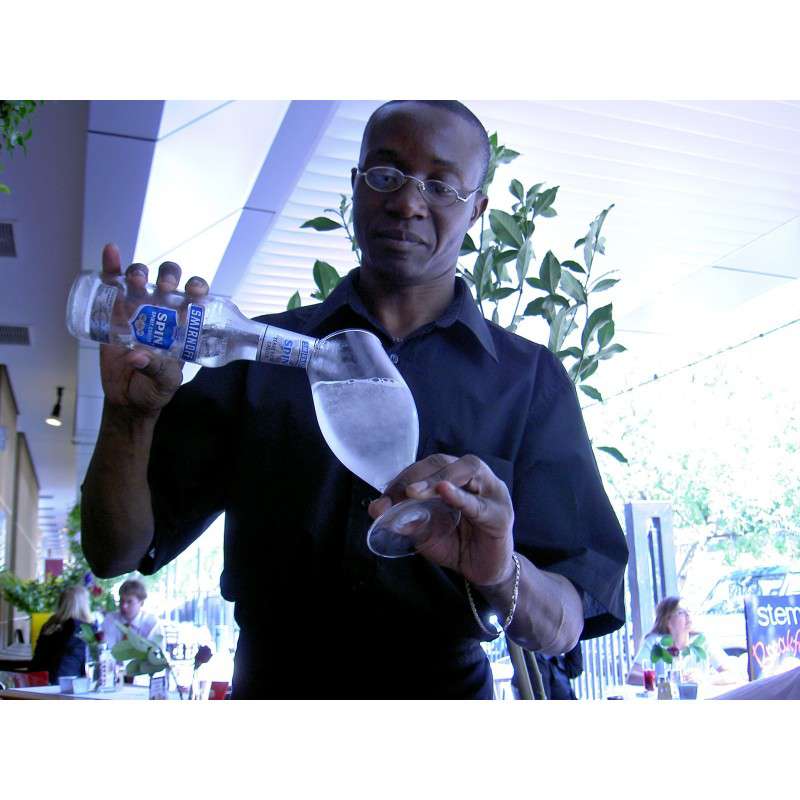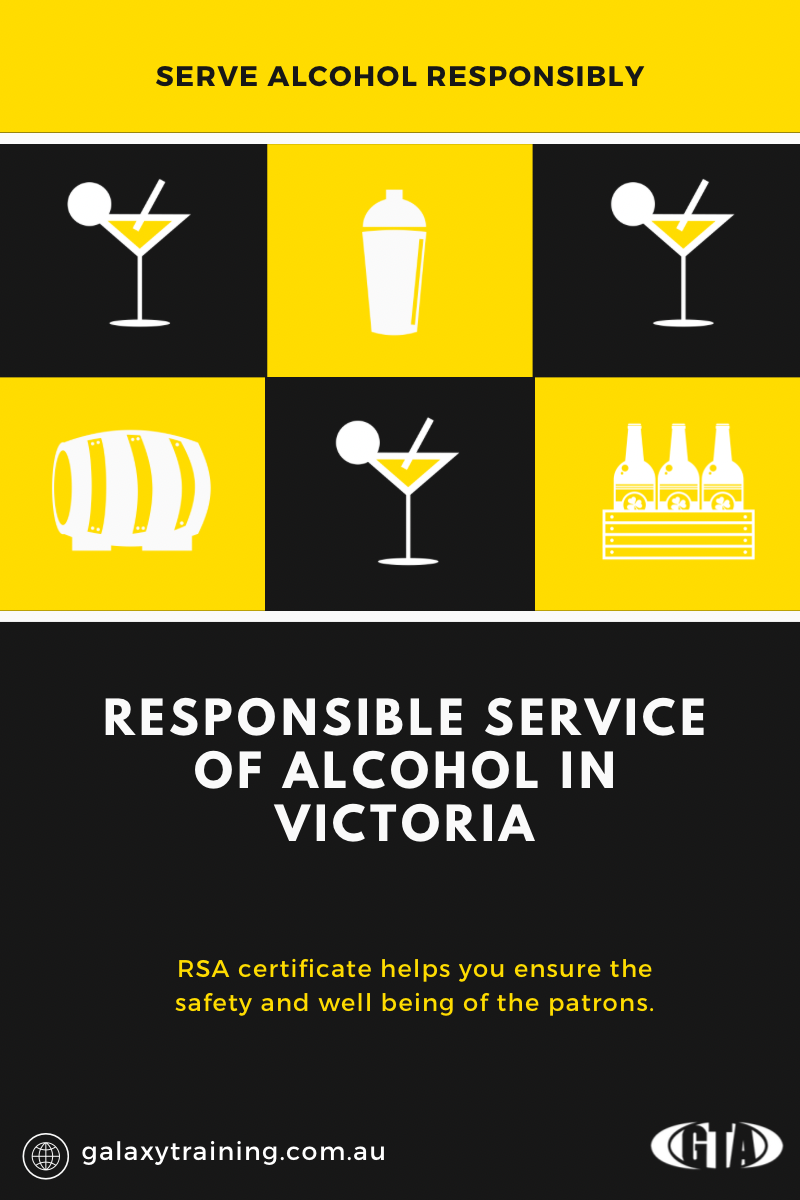Why You Need servsafe alcohol certification for Your Career in Food Service
Why You Need servsafe alcohol certification for Your Career in Food Service
Blog Article
Master Responsible Alcohol Solution With Comprehensive Certification Programs
The proficiency of accountable alcohol solution is not merely a regulatory need; it is an essential element that improves the credibility and operational honesty of facilities within the hospitality sector. Comprehensive accreditation programs offer important understandings right into local laws, efficient intervention strategies, and client engagement approaches. By investing in these training efforts, businesses can promote a society of obligation amongst their staff, mitigating dangers and boosting client satisfaction. The path to effective application and its lasting advantages may not be as simple as it appears. What challenges exist in advance for those who look for to boost their service requirements?

Value of Liable Alcohol Service
Liable alcohol solution is necessary to promoting public health and safety and security in establishments that serve alcohols. It incorporates an array of methods made to prevent the overconsumption of alcohol, lower the risk of alcohol-related harm, and make certain a safe environment for clients and personnel alike. By supporting responsible service criteria, establishments can alleviate potential events of intoxication, which might result in accidents, violence, or other adverse outcomes.
Additionally, accountable alcohol service improves the general client experience. Furthermore, facilities that stick to accountable solution methods commonly experience reduced insurance policy costs and minimized lawful obligations.
Additionally, applying liable alcohol solution methods lines up with broader public health and wellness efforts focused on reducing substance misuse and advertising neighborhood health and wellness. This positive technique not only safeguards individual patrons but additionally adds to a much healthier society. Eventually, responsible alcohol solution is not merely a legal responsibility; it represents a moral commitment to the health of customers and the neighborhood at large.
Trick Elements of Accreditation Programs
Certification programs for liable alcohol service commonly include numerous essential parts developed to outfit staff with the essential skills and understanding to serve alcohol safely. These programs usually include detailed training on local and state alcohol legislations, making sure that individuals understand their legal commitments and the effects of failing to comply.
One more important component is the identification of signs of intoxication - servsafe food handlers card. Personnel are educated to identify behavior cues indicating when a patron may be over-served, allowing them to interfere suitably
Additionally, effective communication techniques are highlighted, educating team how to engage with customers in a manner that promotes responsible drinking. This includes training in dispute resolution methods, enabling personnel to manage tough scenarios steadly and properly.
In addition, programs frequently include sensible circumstances and role-playing workouts, supplying individuals with real-life examples to practice their skills. Recurring education and learning and sources are necessary for preserving knowledge and skills over time, as laws and finest methods develop. Together, these elements produce an extensive framework that empowers team to promote a much safer drinking environment while minimizing responsibility for facilities.
Advantages for Staff and Establishments
Team and facilities alike gain substantial advantages from participating in responsible alcohol solution accreditation programs. For staff, these programs boost understanding and skills related to alcohol solution, equipping them to recognize indications of drunkenness and execute effective treatment strategies. This training not just fosters a feeling of confidence amongst employees however also advertises a society of safety and security and obligation in the office.
For establishments, spending in certification programs can cause minimized liability and less cases associated to over-serving. By making certain that staff are well-trained in liable solution practices, establishments can alleviate risks connected with alcohol-related incidents, thus protecting their track record and financial stability. Numerous jurisdictions use motivations, such as reduced insurance policy premiums, for certified establishments.
Additionally, executing licensed methods can boost consumer satisfaction and loyalty. Patrons are more probable to return to locations that prioritize their security and wellness. Eventually, a commitment to accountable alcohol service not only cultivates a positive environment but also enhances the overall operational efficiency of establishments, making it a smart investment for long-term success in the friendliness sector.
Usual Difficulties in Alcohol Service
Making sure efficient alcohol service is not without its challenges, even in facilities dedicated to accountable practices. One significant challenge is the demand for personnel to precisely evaluate customers' alcohol intake degrees. servsafe food handlers card. This needs a keen understanding of how different elements, such as food intake, resistance, and specific distinctions, influence intoxication
Additionally, the pressure to optimize sales can contravene accountable service protocols. Staff members may face troubles in declining service to intoxicated people, especially in social environments where peer stress and expectations are prevalent.
One more difficulty is remaining upgraded with local regulations and guidelines concerning alcohol solution. Compliance is crucial, yet constant modifications in legislation can produce confusion and might lead to unintentional infractions.
Training programs might not constantly cover the nuances of real-world circumstances, leaving personnel unfit to manage complex circumstances. Irregular communication in between management and workers pertaining to expectations for find out this here accountable service can even more aggravate these issues.
To browse these obstacles effectively, establishments have to foster an atmosphere of assistance, stressing the importance of accountable solution while providing the required devices and training for staff to be successful.
Actions to Get Accreditation
To get Accountable Alcohol Solution Qualification, applicants typically begin by investigating the specific requirements mandated by their regional governing authorities. These requirements why not check here might differ dramatically depending on the region, so it is necessary to acquaint oneself with the pertinent regulations and regulations.

After picking a program, applicants need to complete the requisite training, which normally covers subjects such as identifying drunkenness, understanding legal duties, and executing approaches for responsible service. Individuals should actively engage with the material, as this understanding is essential for effective alcohol service.

Following training, candidates normally take an examination to evaluate their understanding of the material. Successful conclusion of this analysis causes qualification.
Conclusion
To conclude, grasping accountable alcohol solution with detailed qualification programs is essential for promoting safety and enhancing customer experiences within the hospitality industry. By equipping staff with the necessary knowledge and skills, establishments not just minimize threats associated with overconsumption and lawful responsibilities yet additionally grow a society of obligation. This dedication to accountable service ultimately leads to see here raised consumer commitment and functional success, strengthening the significance of ongoing training and adherence to alcohol service criteria.
Report this page